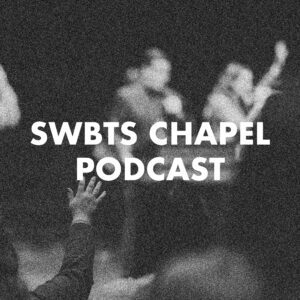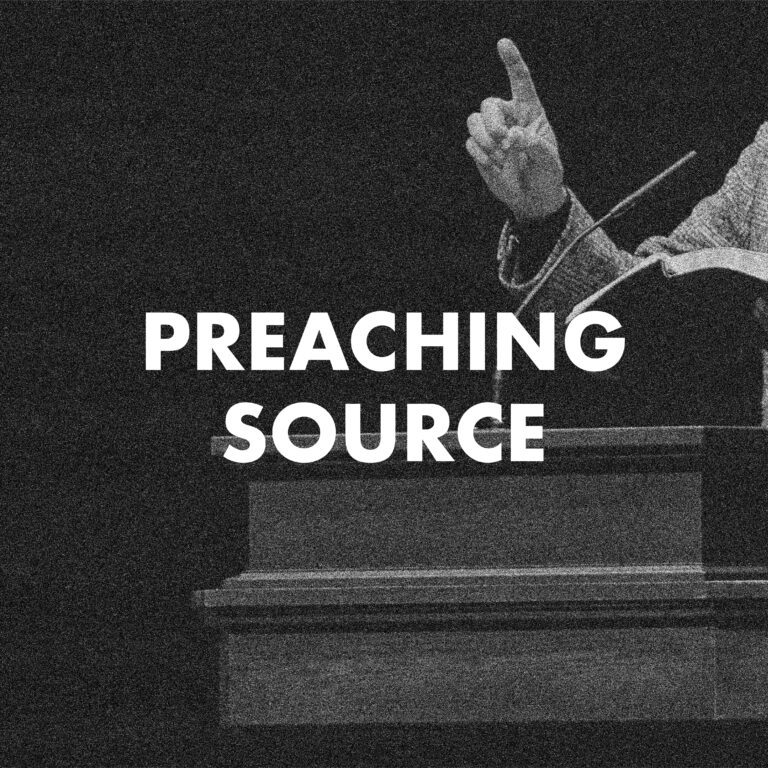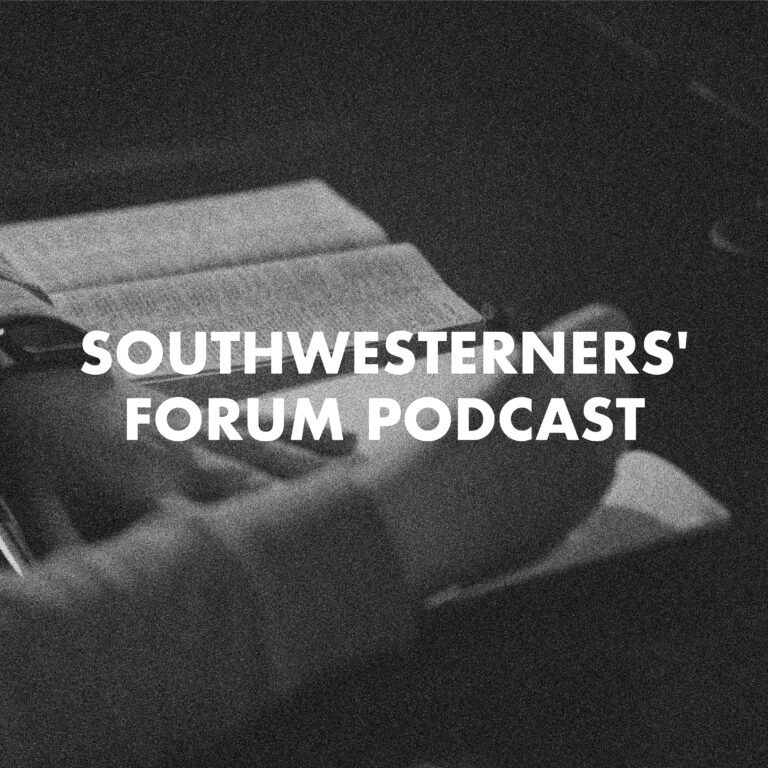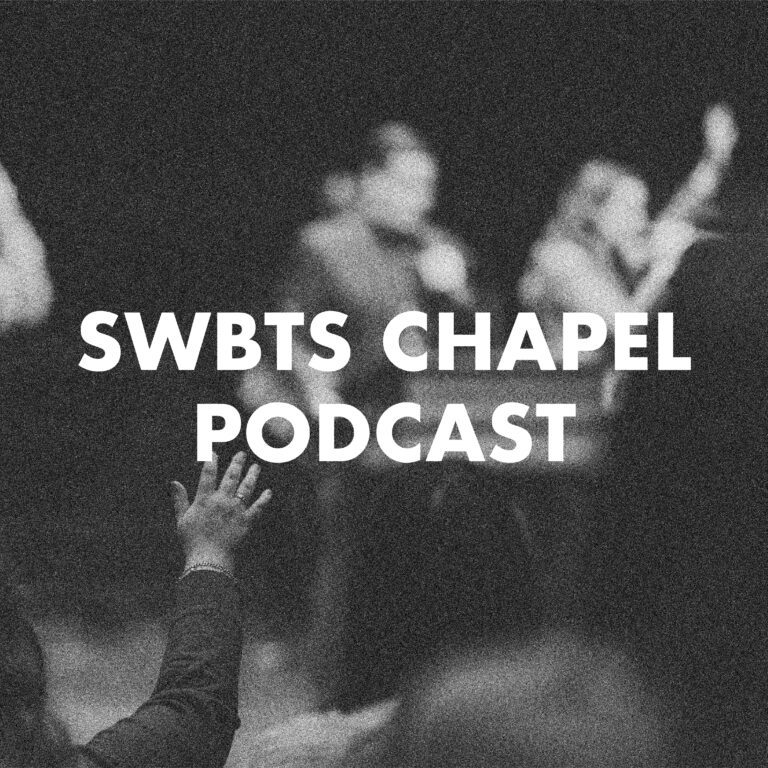The following is an uncorrected transcript generated by a transcription service. Before quoting in print, please check the corresponding audio for accuracy.
D. Jeffrey Bingham, Research Professor of Historical Theology, and Jesse Hendley Chair of Biblical Theology at Southwestern Seminary, preached from John 15, verses 1-11, in SWBTS Chapel on February 13, 2025.
Thank you for the lovely music. President Dockery, thank you for this honor of allowing me to address our college and seminary and our friends who are watching from all over the world, a world that is deeply in need of distinctive Christian joy at my wedding, only two people cried, the pastor and the groom. Ron Harvel, a friend closer than a brother, had traveled from West Texas to perform the ceremony for Pamela and me.
You see Ron and I had arrived in a West Texas town after we had both graduated from seminaries. I had arrived a little bit ahead of him. He came a little bit after, and this was for both of us, our first pastorate. We didn’t know anything. Well, I knew more than he did. We were instantly magnetized to each other because we were the same age. We were desperately lonely. I believe I was a bit lonelier than he was, because my first pastorate was taken while I was still single. Ron was married to Marcia, and over the time that I was with Ron and Marcia, the Lord would bless them with two children, both of whom I babysat at different points in their lives. Ron and I met at a ministerial alliance meeting, and we crossed the room to meet each other, and from that moment on, Ron and I were inseparable, as a matter of fact, every morning, seven days a week, at seven o’clock in the morning, Ron would drive to my house, where he would pick me up, and we would drive to the local cafe where the oil men and the cattlemen were gathering for their breakfast and for their coffee, and we would discuss the challenges we were facing over breakfast and cup of coffee after cup of coffee, we would pray for our congregations.
We would discuss the content of our sermons. We would seek wisdom for sanctification and for guidance in our own lives, we would pray deeply and constantly for another and over three years, Ron and I became closer than brothers, and so when Pamela and I were getting married after I had returned to DFW to do my PhD work, there was only one man in the world who we could possibly conceive of as marrying us. And so, when Ron stood before me that day, and I stood before him, he was looking at me, and he was seeing that since he had known me for the first time in my life, a dream was coming true, a hope was being fulfilled. And I was full of joy. And so, when he gave me my charge as a husband, and when he felt the joy that I felt over my dream coming true, the Lord giving me by His mercy and His grace my own Eve, He burst into tears, and I followed.
Thankfully, Pamela had been given a tissue by her sister that she had tucked into the sleeve of her wedding gown for her own use, but she ended up pulling it out and handing it to her weeping, blubbering husband, I’m sure, wondering what in the world she had gotten herself. Yourself into you, see joy manifests itself in a variety of ways. For some, Joy manifests in tears. For others, Joy manifests itself in quiet solitude. For others, like Dr Yarnell, it manifests itself in doing the twist. For some, it manifests itself in screams of delight, howls of happiness. For others, it looks like satisfaction. And in that satisfaction, for some, it appears as sleep. The blessedness of sleep, you cannot dictate what joy looks like, but we can, from the scriptures, gain some insight as to what joy is in a distinctively Christian way, what the fountain of joy is for a distinctive Christian love.
The conversation we’re going to have this morning is a very serious one. It is a very formal one. It is a conversation to which jeans and T shirts are probably inappropriate because we are talking not about joy generically, but we are talking about joy as something that arises differently from the way it arises in the world, the manner in which It arises within a Christian I would imagine that perhaps the first manifestation of love, that that burst forth in joy that we see is in the story of Adam and Eve. Remember that God looked upon Adam and judged that it was not good that he be alone, and so the first step was to parade a bunch of animals before him to see if any of them struck his interest. Adam found out very quickly that he didn’t want to date any of them, and so the Lord put him to sleep. And I like to think that while Adam was asleep, he dreamt of Eve, the same way in which during those three years in West Texas I dreamt of my Eve. And I like to think that when Adam woke up from his dream and saw Eve, she was precisely what he had dreamt of. She was his dream come true.
And so Adam sings the first hymn of praise, you know the words. He cannot contain himself. He bursts out in song, which is another way in which Joy manifests itself, when a dream comes true, when a hope is fulfilled. You know his song. This is bone of my bones, and flesh of my flesh. She shall be called Woman, for she was taken out of man, the first hymn, the first song of joy that bursts forth from a human being. And I don’t know what the tune was or or what it sounded like, but I like to think maybe that, oh, I don’t know that it sounded something like this. When Beethoven wrote his Symphony Number nine, the part which we know best is the Ode to Joy, He was reflecting upon a poem by Friedrich Schiller. Schiller’s poem had celebrated the delight, had celebrated the joy of brotherly love and it inspired Beethoven to write a symphony which celebrated that reality, for it was in brotherly love.
Schiller said at the end of his life that perhaps we find maybe only one of the few enduring fountains of joy. In a Christian sense, we find the story of a joy fulfilled which is also within the Gospel of John in the third chapter, 12 chapters before the one with which we are concerned this morning. As a matter of fact, it is the completed joy of the last Old Testament prophet John the Baptist. And in chapter three, you’ll remember the story, John is baptizing, and Jesus is baptizing on the other side, and John’s disciples come to him all riled up and disappointed and angry and jealous and envious, and they essentially say to John something to the effect, do you want us to run him off? And John says, no, because what you don’t understand is that he is the one that I have been waiting for all my life. As a matter of fact, he’s not the one that only I have been waiting for all my life, but the one across the river now baptizing is the one that every Old Testament, prophet before me, from Moses to Malachi, has been dreaming of hoping for and expecting, and so Jesus for John the Baptist, the incarnate Son of God.
For John the Baptist is the consummation, is the fulfillment, is his dream come true. And in light of this, John says that his joy has been made full. It’s the same language that we will see in 12 chapters in the Gospel of John. CHAPTER 15, it is the same language that is promised to the disciples, and in extension, the same consummation that is promised to you and to me, that when our dream is fulfilled, when our hope is consummated, we too will be full of joy. The text of John 15 is a text which is full of metaphor. It is full of figures of speech. It is full of word pictures and our chore this morning. Our task is to bring concreteness, is to bring doctrinal clarity, is to bring ethical certainty to what lies under Jesus’ use of this metaphor.
The metaphor, of course, is the metaphor of a vine and the metaphor of branches which are attached to it. Uh, and the entire point is, how does an attached branch become fruitful? Jesus chooses a metaphor because word pictures can work marvelous things. But the problem with a word picture, the issue with the metaphor is that the metaphor itself must be interpreted. Jesus is not the first one to employ the metaphor of a vine and of branches. The prophet Isaiah had employed this image long before, in relationship not to Jesus and the disciples, but in relationship to the nation of Israel. In Isaiah chapter five, he had spoken of Israel as a vine with branches within a vineyard over which the Lord Yahweh was watching and which he attended to.
All of the hopes of the Lord were in Israel to become fruitful, but the sad story that Isaiah tells us in chapter five is that Israel never became fruitful, while the Lord dreamt that Israel would produce righteousness within its society, that it would treat the members of the society with righteousness. The Lord was grieved to see that Israel only produced unrighteousness, while the Lord hoped that Israel would act justly, neighbor to neighbor, the Lord was grieved To discover that, instead of that he found within the society of Israel only those who were despairing because justice was not to be found. You see the metaphor that Isaiah uses is that the Lord wanted the vine of Israel to produce grapes that were plump and juicy and sweet, the kind of grape that when you popped it into your mouth and burst the skin would send juice spurting out and dribbling down your chin and staining perhaps your garment of white.
But instead, he found only, at best, sour grapes. He found a community. He found a society which was unrighteous, rather than righteous, that was not treating each other with justice but causing despair. As a matter of fact, four chapters earlier in chapter one, he speaks seriously to Israel about the fact that, oh, it loves to worship. It loves to perform acts of worship. It loves to show up in order to perform ritualistic activities, sacrifices, offerings. But he says, look, y’all, they mean nothing to me, because while you love to show up to do performance of worship, you’re failing to care for the widows among you. You’re failing to care for the orphans among you. You are failing to show compassion and gentleness, mercy and tenderness. You are failing to be kind in your actions towards each other within your society. You get excited in the acts of worship, but in the Acts of societal love, you are failing, and by failing, you are not round, plump, juicy, sweet. Grapes, but you were sour and distasteful, and you bring me grief, and so sadly, Israel did not end up being a vineyard with branches that produce the fruitfulness that the Lord was seeking, the vineyard of Israel failed.
Now it failed, of course, because Israel was trying to do all this in a time of the Old Covenant. The lesson here is that the fruit that the Lord is ultimately looking for cannot be produced by a natural nation. It cannot be produced by a society that only has the equipment of Natural Humanity. Justice and injustice and righteousness are out of reach of any human government, any human society that seeks to do it by its own human ability, the truth is that before righteousness and justice, before mercy and compassion, before tenderness and kindness within a society or a seminary community could actually occur, the New Covenant had to be in place. The incarnate Son of God had to come and John the Baptist, then his joy is fully understandable. His joy can be complete, because finally the means to true fruitfulness has arrived. And so, when we look at the first words of John 15, we find Jesus introducing this truth. Notice the first words. You don’t want to miss them. I am the true vine. Jesus speaks these words against the background of Isaiah five. He speaks these words against the background of all of those who thought that the nation Israel alone, in its natural capacity, its disappointing natural capacity, its old covenant setting, was the true vine, but in the first words of John 15, Jesus introduces himself as the true vine. You see, he has come bringing the blessings of the new covenant.
And the blessings of the New Covenant, according to Jeremiah and Ezekiel involve the almost unbelievable promise of the indwelling of God by means of the third person of the Trinity, the Holy Spirit. And Ezekiel and Jeremiah promise us that what the Spirit does when he enters into us in His new covenant ministry that arrives only with the Messiah in a first fruits way is that the first thing the Spirit brings is a washing, a cleansing, the forgiveness of sins. But then more than that does the spirit bring from forgiveness, the spirit moves to sanctification, because he writes the law on our hearts, he writes justice on our hearts, he writes righteousness on our hearts. He writes tenderness and kindness, gentleness and mercy, compassion and a fixation upon the needs of others, on our hearts, internalizing what it is that brings the Lord a fulfillment of joy, making it part of our very nature, making it part of our very soul, making it part of our very Spirit, by the mercy and the ministry of the third person of the Spirit. And so, Jesus introduces himself as the true vine his father as the gardener. And he uses very stern language here. Or he uses language about removing and pruning and burning.
He uses this stern language in order to communicate to the hearer that that you must understand that your basic purpose in life, the orientation of your life as those who are followers of Jesus Christ is to be fruit bearers. He contrasts this to mere forgiveness, which is the first of the spirits works, but only the first notice what he tells the disciples in verse three, you are already clean. Here, he reminds the disciples, and He reminds the Christian reader that you have received forgiveness. It was the first gift given to you. The Spirit washed you immediately upon your belief. But you see for Jesus Christ as the vine, he wants us to move from forgiveness to fruitfulness, because it is in fruitfulness that our full joy rests. The journey for the Christian is from forgiveness to fruitfulness. You see, this is where we begin to be able to understand some of the figures, some of the metaphor by calling himself the true vine. Jesus is identifying himself as the ultimate source of sanctification.
He has become the ultimate source of justification by the Father, the manner in which it is passed on to us, although silent in this text, but glaring in other texts is through the third person of the Godhead, the Holy Spirit, and so from the Father through the Son, by the Spirit, the idea of the vine and of the branches Receiving the nourishment that it requires in order to go from dry to fruitful. Is a ministry of the Holy Trinity, from God the Father through God the Son by God the Holy Spirit. And so, the chapter is about the move. The metaphor is about the journey from forgiveness to fruitfulness. We are not to rest on the laurels of forgiveness. We are not to understand that our ultimate hope has been met in forgiveness.
There is a whole enchilada still to come, and the whole enchilada is fruitfulness. Now, that’s another metaphor. It’s another figure of speech. What in the world does it mean? Well, in the first part of John 15, we’re not given any explicit, precise ideas yet, but we know from the context of which Jesus is probably thinking and of which John, the author is probably contemplating upon, Is that fruitfulness in Jesus’ mind is what it was in the Isaiah passage, righteousness practice towards each other in our personal relationships, Justice practiced in our personal relationships, In our society with each other, caring for each other as we would for a orphan, caring for each other as we would for one who has lost her husband and is overcome and paralyzed with grief, wondering how she is going to sustain herself and raise her children, compassion, mercy, gentleness, tenderness, generosity and feelings of deep sympathy, which show themselves in. Acts of righteousness, justice, mercy and compassion and provision. The metaphor doesn’t bring these out at first, but it will. As we move down the teaching of Jesus, we find a word that occurs 11 times in our passage, the word remain, or in some of your translations, the word abide, again a metaphor. It speaks of the branches need to remain attached to the vine because the vine is the source of its fruitfulness.
As a matter of fact, it’s more than that. The only hope that the branch has of surviving, of being what it was created for, is to remain attached to the vine, because from the vine it receives the nourishment that it needs in order to blossom, in order to flourish. But what does it mean to abide? What is the concreteness of abiding? How do we find in this metaphor the precise, perhaps spiritual discipline that the Lord Jesus specifically has in mind. He displays that to us in verse seven, if you remain in me and my words remain in you. Ask whatever you want, and it will be done for you. Here, Jesus introduces that abiding or remaining in him has to do with obedience to His words, obedience to His teaching. And so, the way in which you remain in the Lord Jesus Christ permanently attached to the vine as your source of nutrients which allow you to blossom and bloom and flourish in fruitfulness is by continually paying attention to his words and obeying them. As a matter of fact, he narrows it a little bit just a few verses down in verse 10, if you keep my commandments, you will remain in my love.
You see, this is the specificity, this is the precision. This is the concreteness of the figure of speech, of remaining to remain one who wishes to be a disciple, a fruitful disciple, must OBEY Jesus commands, but remaining also involves a spiritual discipline, a particular spiritual discipline, and the particular spiritual discipline is also open to us in verse seven, ask whatever you want, and it will be done for you. Now I don’t think this refers to picking a lotto number. I don’t think it refers to knowing what stock to pick tomorrow. You have to appreciate the context. The context is a context of fruitfulness, ethical fruitfulness, virtuous fruitfulness. And so the context gives us what it is we are to ask for and what we can be assured of the prayers that will be answered. You are to ask that the Lord would make you virtuous. You are to ask that the Lord Jesus would strengthen you for obedience to His commands that the Lord Jesus would make you ethical and moral. Those prayers I promise you, on the authority of the Word of God, will be answered.
And what is the command? The command is concretely, the command to love verse nine. We can extend our text to verse 12. This is my Command: Love one another as I have loved you, to love one another by being just to each other, to love one another by being righteous with each other, to love one another by understanding that we may have the same needs as a widow or as an orphan, reaching out to touch us in mercy, compassion, gentleness, kindness, generosity, that to be fruitful means to be virtuous, particularly virtuous in distinctive Christian love. And so now we come to the heart of our passage, and that is verse 11. I have told you these things so that my joy may be in you and your joy may be complete. My joy may be in you. In other words, Jesus finds his greatest joy in us when we are fruitful. Jesus finds his greatest love in us when we are loving each other.
Jesus finds his greatest joy in us when we are fruitful branches bearing the fruit of brotherly love and although it may be counter intuitive for our flesh, although it may be counter intuitive to everything the world teaches us, although it may be counter intuitive to some of your experiences, in the same way in which John, the Baptist, greatest hope was fulfilled in the arrival of Jesus. And it was in Jesus that he found his fullness of joy. I promise you this morning, on the authority of the Word of God, no matter to what extent it is antithetical to the claims of your flesh and to the claims of the world on the authority of the Word of God, I promise that Your joy is at its fullest when you find yourself in obedience to the words, the teachings and the commands of Jesus Christ, in particular, his command to love one another in in our community of southwestern, there are orphans in our community of southwestern, there are widows of various types.
In our community of Southwestern, there are people who are dying on the vine, waiting for a word of encouragement, for an act of justice, for a deed of righteousness. They are thirsty for generosity and compassion, parched for gentleness and tenderness, dreaming of kindness. When you reach out to them, empowered by Jesus Christ and the Spirit in answer to your prayers that you would be loving, I promise you, on the authority of the Word of God, that you bring immeasurable joy to the Lord Jesus Christ, you bring immeasurable joy to them, and You will bring immeasurable full blossoming joy to yourselves, brothers and sisters, beloved in the power of Christ and the Holy Spirit, Love one another and find your joy.









